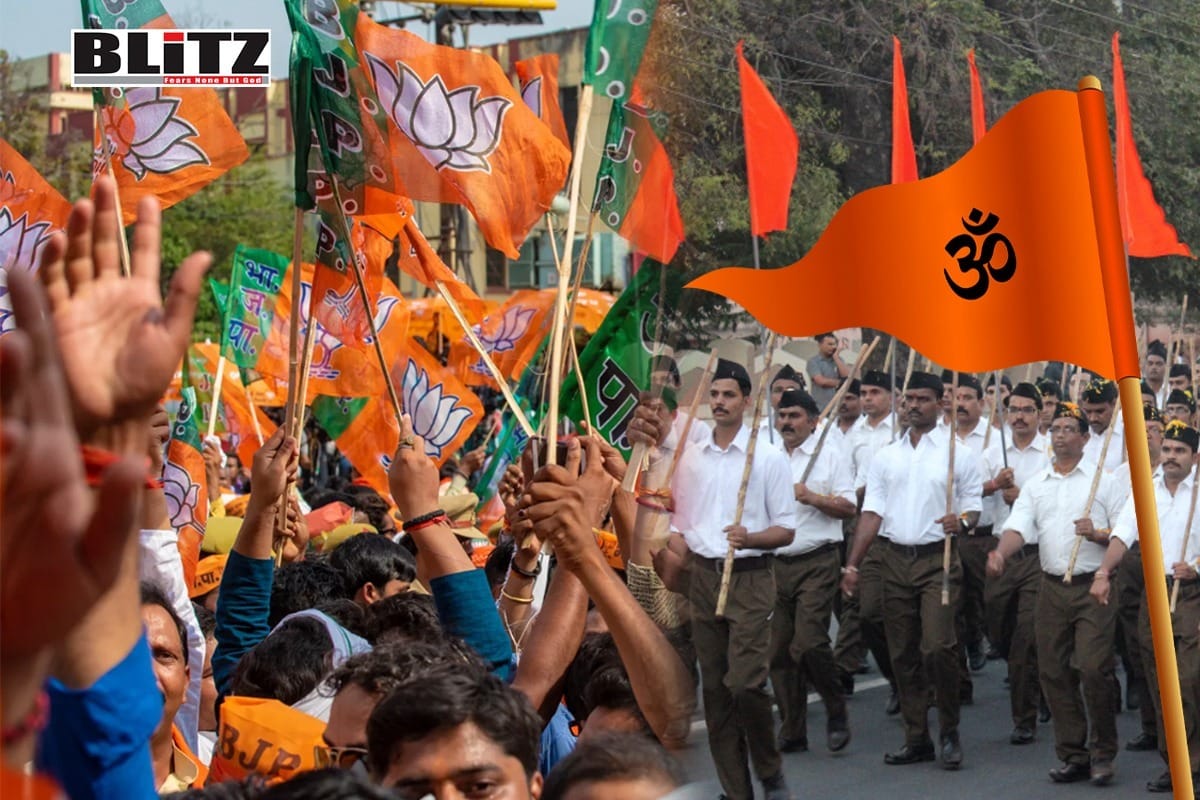Evolution and challenges in the RSS-BJP alliance
- Update Time : Saturday, June 22, 2024

The intricate relationship between the Rashtriya Swayamsevak Sangh (RSS) and the Bharatiya Janata Party (BJP) has been marked by occasional tensions and mutual dependence over decades of Indian political history. Rooted in ideological affinity yet fraught with periodic disagreements, this alliance has recently witnessed a resurgence of public scrutiny and introspection following the 2024 elections. Various statements and actions from RSS leaders have been interpreted as subtle admonitions towards the BJP, sparking debates about the nature of their partnership and its implications for India’s political landscape.
The RSS, as a socio-cultural organization with a nationalist ideology, has played a pivotal role in shaping the ideological framework of the BJP since its inception. Formed in the aftermath of the Janata Party’s disintegration in 1980, the BJP emerged as a political force representing Hindu nationalist sentiments, distinct from its precursor, the Bharatiya Jana Sangh. The relationship between the RSS and the BJP has not been without its challenges, often resembling a mentor-student dynamic where ideological fidelity competes with political pragmatism.
Key moments in this relationship include the pivotal elections of 1984, 2004, and the more recent 2024. In 1984, during a period of national crisis, the RSS chose to support stability under Rajiv Gandhi’s leadership over potential coalition scenarios involving the BJP, reflecting its prioritization of national interest over partisan gains. Similarly, the strain between the RSS leadership under K.S. Sudarshan and Prime Minister Atal Bihari Vajpayee in the early 2000s highlighted divergences in leadership style and strategic priorities, contributing to a less enthusiastic RSS stance during the 2004 elections that saw the BJP lose power.
The aftermath of the 2024 elections has brought renewed focus on the RSS’s role and influence within the BJP-led government under Prime Minister Narendra Modi. Despite significant policy achievements aligned with RSS principles, such as the abrogation of Article 370, construction of the Ram Mandir, and the abolition of triple talaq, tensions have surfaced regarding leadership dynamics and ideological alignment. Criticisms from within the RSS leadership, notably articulated by Sarsanghchalak Mohan Bhagwat and others, have underscored concerns over perceived arrogance and deviations from core ideological principles within the BJP.
Mohan Bhagwat’s address following the RSS workers’ training session and subsequent critiques in RSS-affiliated publications like Organiser have been interpreted as veiled rebukes aimed at recalibrating the BJP’s approach. References to ‘ahankaar’ (arrogance) within the BJP’s ranks and reflections on electoral outcomes as symbolic of divine justice (Ramrajya) illustrate deeper philosophical and strategic concerns within the Sangh Parivar regarding its political offshoot.
The recent wave of criticism from RSS quarters needs to be understood within the context of the Sangh’s broader objectives and its centenary celebrations on the horizon. While external observers and political rivals might perceive these critiques as signs of a rift or potential realignment, historical precedents caution against overstating their immediate implications. The RSS’s preference for ‘pratipaksh’ (constructive critique) over outright opposition signifies a nuanced approach aimed at course correction rather than regime change.
The BJP’s leadership, characterized by Narendra Modi and Amit Shah’s formidable influence, remains central to the Sangh’s strategic calculations, particularly in navigating India’s evolving political landscape and societal challenges. Despite occasional disagreements, the RSS acknowledges the BJP’s electoral prowess and the imperative of maintaining a united front to counter opposition forces.
Looking ahead, the RSS-BJP relationship is likely to continue evolving, shaped by electoral dynamics, ideological imperatives, and leadership transitions. The Sangh’s role as a moral compass and ideological anchor for the BJP underscores its enduring influence within the broader Hindu nationalist movement. However, the BJP’s increasing assertion of independence and leadership centrality poses challenges in balancing alliance dynamics with maintaining ideological purity.
The upcoming centenary celebrations of the RSS present an opportune moment for introspection and recalibration within the Sangh Parivar, potentially influencing its strategic alignments and policy priorities in the coming years. As India navigates complex socio-political challenges, the synergy between the RSS’s cultural nationalism and the BJP’s political pragmatism will continue to shape the contours of Indian democracy and governance.
While the recent criticisms and internal debates within the RSS highlight underlying tensions, they also reaffirm the enduring nature of the RSS-BJP alliance rooted in shared nationalist ideals. The path forward necessitates a delicate balance between ideological fidelity and political pragmatism, ensuring that the synergy between these two pillars of the Hindu nationalist movement remains resilient amidst evolving political landscapes.














Leave a Reply